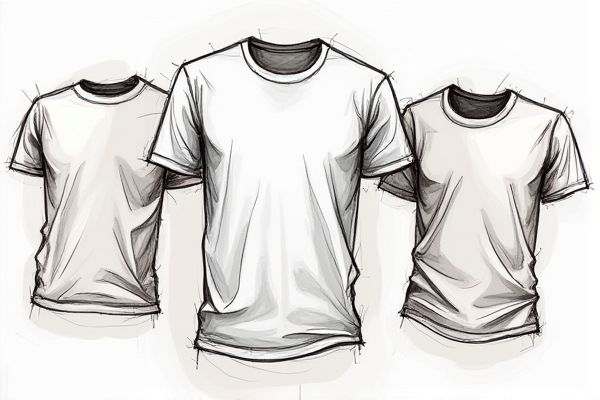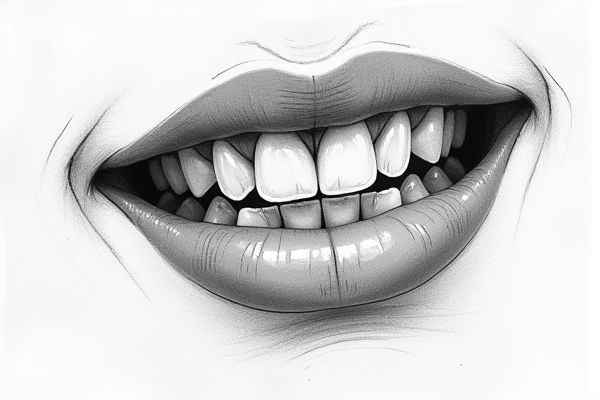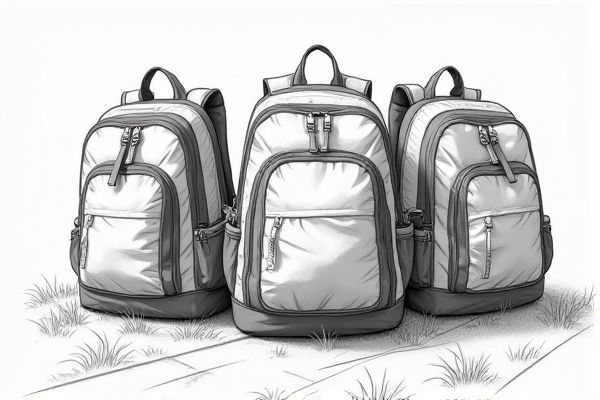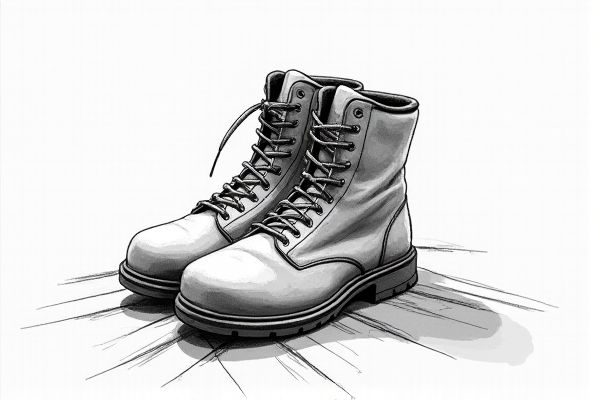In the ever-evolving fashion landscape, finding the perfect tee shirt can be a daunting task, given the plethora of brands available. T-shirts have transcended their status as mere wardrobe staples to becoming a canvas for personal expression and comfort. As consumer priorities shift towards quality, fit, and sustainability, certain brands have stood out for their exceptional offerings in both style and substance. Curious to discover which brands top the list for tee shirts in today's market? Read on to find out.

Illustration of tee shirts
Best brands of tee shirts in 2025
Uniqlo
Uniqlo stands out as a leading producer of high-quality tee shirts, driven by its innovative fabric technologies such as HeatTech, AIRism, and LifeWear, which offer unique functional performance. The brand's focus on core products and efficient supply chain allows for cost savings and quicker restocking, contributing to its global success. By 2023, Uniqlo generated around 84% of Fast Retailing's revenue, with a significant presence in over 3,747 stores worldwide. In Japan, Uniqlo is the most shopped-at apparel retailer, with 43.8% of Japanese consumers purchasing from the brand in the past 12 months. Its global expansion, particularly in China and the US, has been instrumental in its growth.
Everlane
Everlane is renowned for its high-quality tee shirts, particularly the Essential Organic Crew, which has sold over 100,000 units annually since its introduction in 2020. The brand has continuously improved this best-selling item based on customer feedback, implementing changes such as adjustments in sleeve length and neck ribbing. Despite initial mixed responses to these changes, the third generation of the shirt has been well-received, highlighting Everlane's commitment to customer satisfaction and product refinement. The company's focus on transparency, ethical factories, and sustainable materials further enhances its reputation. In 2023, Everlane achieved its most profitable year, with nearly $8 million in earnings before interest, taxes, depreciation, and amortization on over $200 million in sales.
H&M
H&M, as one of the leading apparel retailers worldwide, is a significant producer of high-quality tee shirts, offering a broad and varied range of fashion items. In 2023, H&M's global net sales amounted to around 236 billion Swedish kronor, with Europe being its largest market. The company operates over 4,370 stores worldwide and employs more than 100,000 people. Despite facing competition from ultra-fast fashion retailers like Shein, H&M is focusing on attracting shoppers looking for higher-end products and emphasizing sustainability and quality. H&M's strategy includes collaborations with renowned designers and the launch of premium brands like Cos. For further insights into H&M Group's performance, visit their Statista profile.
Hanes
HanesBrands is a global leader in producing high-quality T-shirts, with its Hanes brand being America's No. 1 apparel brand, found in 9 out of 10 American households. The company boasts a significant market share, holding more than double the U.S. apparel market share of its direct competitor, Fruit of the Loom, with a 2.5% share in 2019. Hanes T-shirts are renowned for innovations such as Tagless, ComfortBlend, X-Temp, Fresh IQ, and ComfortFlex Fit. The company's international segment has grown substantially, with Asia-Pacific and European revenues increasing to 18% and 15% of total sales by 2019, respectively. Hanes prides itself on owning the majority of its worldwide manufacturing facilities, producing approximately 80% of the apparel it sells. For more information, you can visit their official website.
J.Crew
J.Crew is renowned for its high-quality apparel, particularly its tee shirts, which are crafted from the finest materials and exemplify the brand's commitment to style and comfort. In 2019, J.Crew's total revenues reached $2.54 billion, with the brand maintaining a strong presence in the fashion industry. The company's attention to detail and use of premium fabrics, such as fine Italian cashmere, set its products apart. Despite a 2% decrease in sales to $516.8 million in the fourth quarter of 2019, the brand's comparable sales increased by 1%, reflecting its enduring appeal. J.Crew's online platform, launched in 1996, offers a wide range of tee shirts and other apparel, enhancing customer accessibility.
American Apparel
American Apparel, although not explicitly mentioned in provided sources, is often recognized for its high-quality and fashionable t-shirts. However, the US t-shirt market, which includes brands like American Apparel, is expected to grow annually by 3.68% from 2024 to 2028, driven by increasing demand for casual and comfortable clothing, alongside the rising popularity of online shopping and customization. The US apparel market, where American Apparel operates, directly employed approximately 3 million Americans and indirectly employed another 2.3 million in 2020. The market's growth is also influenced by technological advancements in printing and the increasing preference for personalized clothing. In 2020, each individual in the United States spent an average of $1,067.93 on clothing, including t-shirts.
Patagonia
Patagonia is renowned as one of the best producers of T-shirts, particularly known for its commitment to sustainability and quality. In 2010, Patagonia sold over 425,000 T-shirts worldwide, with 76% of those sales coming from the USA and Canada. The company uses 99% organic cotton from Turkey and 1% from the USA for its T-shirts, which are manufactured in Southern California. Patagonia's focus on environmental responsibility is evident in its Fair Trade-certified factories, where 70% of its products are made. The brand's dedication to using recycled materials, such as recycling 10 million plastic bottles in 2019, further enhances its reputation. For an in-depth look at their sustainability efforts, you can read questions for Patagonia's T-shirt line director Cheryl Endo.
Madewell
Madewell stands out as a top producer of tee shirts, renowned for its high-quality fabrics and comfortable fits. The brand's white tees, in particular, are praised for their softness, breathability, and minimal see-through factor, with a fabric composition of 56% Cotton, 38% Modal, and 6% Spandex. Madewell's sales have seen significant growth, with a 31% increase in sales at Madewell stores over a year, outpacing its parent company J.Crew. The brand's commitment to customer feedback and adaptive strategies has contributed to its success. Madewell offers a broad size range, including sizes up to 24W in denim and 3X in other apparel. For more details, visit their official website.
Gildan
Gildan Activewear is a leading producer of tee shirts, boasting an impressive 80% market share in the U.S. printwear industry. The company's vertically integrated structure, which includes yarn spinning, garment dyeing, and sewing, enables it to maintain low production costs, with each T-shirt selling to distributors for approximately $1.3 to $1.5. This cost efficiency, coupled with significant investments in manufacturing and automation, has helped Gildan outpace industry growth, such as a 17.8% increase in T-shirt unit sales in the fourth quarter of 2003, compared to a 1.6% industry growth. Gildan's commitment to sustainability and responsible manufacturing practices further solidifies its position. The company produces roughly 1.2 billion shirts per year, underscoring its dominance in the printwear basics market.
ASOS
ASOS is a leading online fashion retailer, renowned for its extensive and diverse range of tee shirts, catering to a broad customer base with over 23 million active users, 40% of whom are based in the UK. In 2023, despite a 9.9% decline in revenue to PS3.54 billion, ASOS maintained its strong market presence, with 83.7 million orders placed, although this was a 14% decrease from the previous year. The brand's success in tee shirts is partly due to its curated offer and differentiated visual language, which has driven growth in active customer base and average order frequency. ASOS carries over 850 brands, including its own label, which comprises more than 60% of its product line, ensuring a wide selection of tee shirts for various tastes and styles. The company's commitment to customer engagement and operational efficiency has been crucial in its ongoing success.
















Leave a Reply
Your email address will not be published.